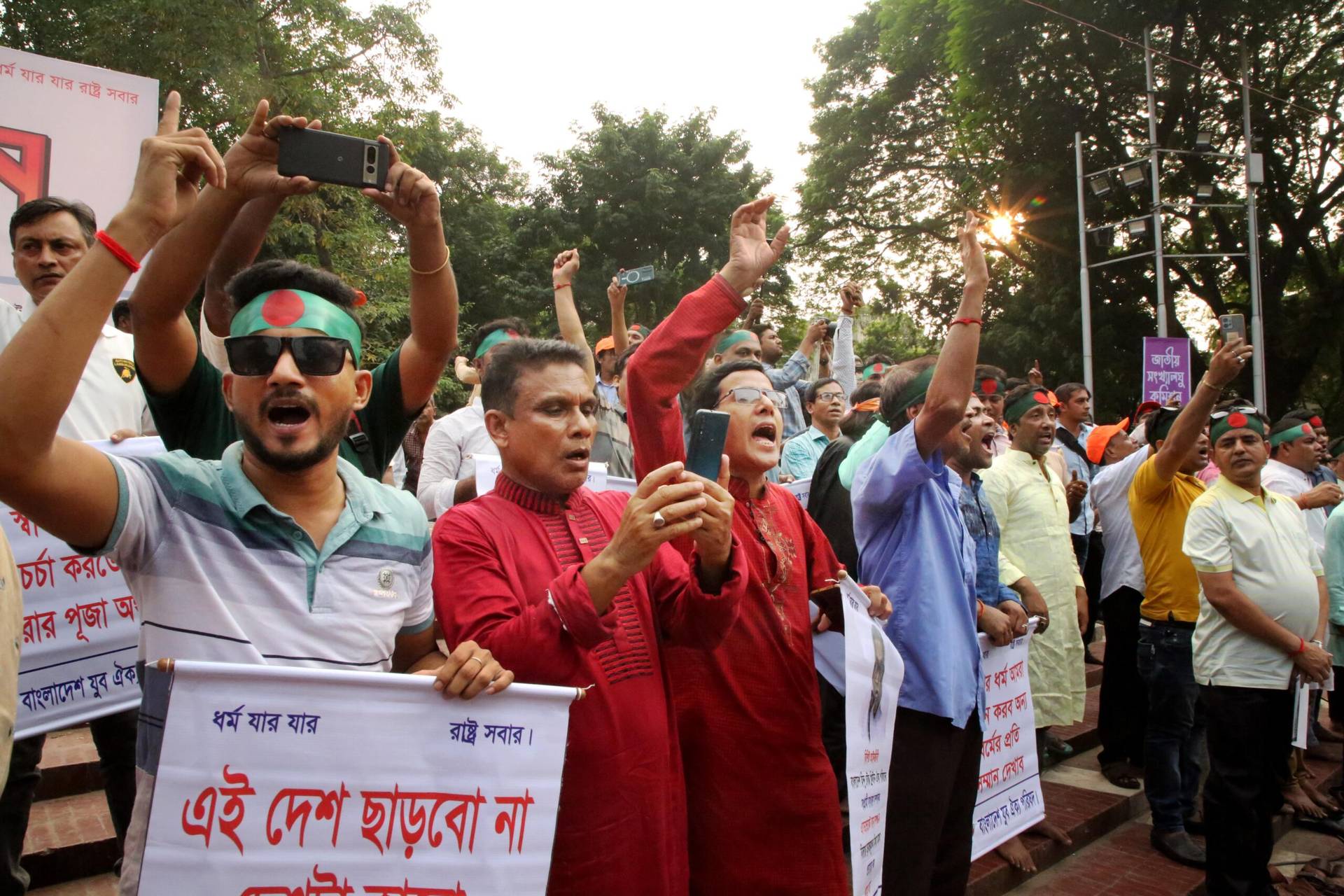MUMBAI, India – Indian Prime Minister Narendra Modi visited Delhi’s Sacred Heart Cathedral on Easter Sunday, spending over 20 minutes in the church.
Modi planted a sapling in the churchyard before leaving.
“This is the first time a prime minister is visiting the church and the message Modi’s visit conveys is huge for the Christian community,” said the Archbishop Mar Kuriakose Bharanikulangara of Faridabad.
Ahead of the visit, Father Francis Swaminathan, a priest assigned to the cathedral, said the visit by the prime minister is a “big message.”
“We know he cares about all minorities, including the Christians,” he said.
“We believe that we will always receive his support and that he will take the country forward by taking people across faiths and communities together,” Swaminathan added.
Since 2014, India has been ruled by Modi’s Bharatiya Janata Party (BJP), which has strong links to the Rashtriya Swayamsevak Sangh (RSS), a militant Hindu nationalist organization. Religious minorities have complained of increased harassment since the party took power on a Hindu-first platform.
However, recently the BJP has been wooing Christian voters, especially in states with a large Christian population like the southern state of Kerala.
The BJP has never had a strong presence in Kerala, where Hindus make up only 55 percent of the population. Christians make up nearly 20 percent of the state’s population – they are only 2.3 percent of India’s population as whole – and priests and nuns from Kerala often serve outside the state’s boundaries.
In Kerala, BJP leaders visited heads of churches on Easter Sunday, in a move the opposition called a double standard.
“Around 600 churches were attacked in the last four years. In some places, even the Christmas mass was stopped. Many people have been jailed, including priests. It is to cover their anti-Christian stand that the BJP leaders in Kerala visit bishops’ houses on Easter day,” said VD Satheesan, the leader of the opposition in the Kerala Legislative Assembly.
Cardinal George Alencherry told The New Indian Express that Christians do not feel any insecurity in “BJP-ruled India.”
“Yes, Christians do not have any such insecurity now. But some say if BJP gets absolute power, minorities may become insecure. But I don’t know. We can’t predict all that,” he said.
“Muslims [in India] may fear that if Hindus get absolute power they will drive them away. Their fear is probably based on what’s happening in Muslim countries, where other communities are suppressed.”
Father Paul Thelakat, the former spokesperson of the Syro-Malabar Church, said he welcomed Modi’s celebration of the plurality of India.
“Christians in this country have an apprehension of anti-Christian attitude of the BJP with its Hindutva ideology,” he told Crux.
“It is certainly welcome that the Prime Minister is breaking the fundamentalist mold and becoming open to other religions and people of so called backward and less privileged groups,” the priest said.
“I do not question the BJP leaders coming close to the Christian community. I believe it is no pre-election political gimmick but an honest attempt to reach out to everyone in this country. Christians expect Prime Minister Modi to come out of his silence on growing anti-Christian intolerance and control the extremist elements within the party,” Thelakat said.
“The Christian attitude has to be neither prostrating abeyance nor all out condemnation but watchful of political prudence. It is a positive attitude, but it must be to the other communities as well. No community or no section of the Indian society can be considered enemies of the country and treated as such,” he told Crux.













